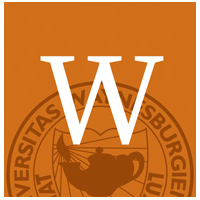What do they do?
Collect evidence at crime scene, classify and identify fingerprints, and photograph evidence for use in criminal and civil cases.
Also known as:
Community Service Officer, Crime Lab Analyst (Crime Laboratory Analyst), Crime Scene Evidence Technician, Crime Scene Investigator, Crime Scene Specialist, Crime Scene Technician, Criminalist, Evidence Custodian, Evidence Technician, Field Evidence Technician, Field Identification Specialist, Forensic Identification Specialist, Forensic Science Examiner, Forensic Scientist, Forensic Sergeant, Forensic Specialist, Identification Officer, Identification Technician, Latent Fingerprint Examiner, Latent Print Examiner, Police Crime Scene Technician
-
1%
Change
Ranks #44 in job growth rate150Job Openings
Ranks #19 in net job growth
-
University of New Haven
West Haven, CT
-
Johns Hopkins University
Baltimore, MD
-
Waynesburg University
Waynesburg, PA
-
University of Maryland-College Park
College Park, MD
-
Caribbean University-Bayamon
Bayamon, PR
Looking for colleges that offer a specific major? Use the College Match Tool to find your best-matched schools and discover your estimated Net Price!
- Doctorate or Professional Degree (3%)
- Master's degree (16%)
- Bachelor's degree (43%)
- Associate's degree (10%)
- Some college, no degree (19%)
- High school diploma equivalent (9%)
- Less than high school diploma (<1%)
People in this career often have these skills:
- Active Listening - Giving full attention to what other people are saying, taking time to understand the points being made, asking questions as appropriate, and not interrupting at inappropriate times.
- Critical Thinking - Using logic and reasoning to identify the strengths and weaknesses of alternative solutions, conclusions, or approaches to problems.
- Speaking - Talking to others to convey information effectively.
- Reading Comprehension - Understanding written sentences and paragraphs in work-related documents.
- Writing - Communicating effectively in writing as appropriate for the needs of the audience.
People in this career often know a lot about:
- Law and Government - Knowledge of laws, legal codes, court procedures, precedents, government regulations, executive orders, agency rules, and the democratic political process.
- English Language - Knowledge of the structure and content of the English language including the meaning and spelling of words, rules of composition, and grammar.
- Public Safety and Security - Knowledge of relevant equipment, policies, procedures, and strategies to promote effective local, state, or national security operations for the protection of people, data, property, and institutions.
- Customer and Personal Service - Knowledge of principles and processes for providing customer and personal services. This includes customer needs assessment, meeting quality standards for services, and evaluation of customer satisfaction.
People in this career often have talent in:
- Oral Comprehension - The ability to listen to and understand information and ideas presented through spoken words and sentences.
- Written Comprehension - The ability to read and understand information and ideas presented in writing.
- Inductive Reasoning - The ability to combine pieces of information to form general rules or conclusions (includes finding a relationship among seemingly unrelated events).
- Deductive Reasoning - The ability to apply general rules to specific problems to produce answers that make sense.
- Information Ordering - The ability to arrange things or actions in a certain order or pattern according to a specific rule or set of rules (e.g., patterns of numbers, letters, words, pictures, mathematical operations).
- Near Vision - The ability to see details at close range (within a few feet of the observer).
- Oral Expression - The ability to communicate information and ideas in speaking so others will understand.
- Written Expression - The ability to communicate information and ideas in writing so others will understand.
- Problem Sensitivity - The ability to tell when something is wrong or is likely to go wrong. It does not involve solving the problem, only recognizing that there is a problem.
- Flexibility of Closure - The ability to identify or detect a known pattern (a figure, object, word, or sound) that is hidden in other distracting material.
- Speech Clarity - The ability to speak clearly so others can understand you.
- Speech Recognition - The ability to identify and understand the speech of another person.
- Category Flexibility - The ability to generate or use different sets of rules for combining or grouping things in different ways.
People in this career often do these activities:
- Document legal or regulatory information.
- Write operational reports.
- Process forensic or legal evidence in accordance with procedures.
- Testify at legal or legislative proceedings.
- Analyze crime scene evidence.
- Examine crime scenes to obtain evidence.
- Interview people to gather information about criminal activities.
- Record crime or accident scene evidence with video or still cameras.
- Respond to emergencies to provide assistance.
- Draw detailed or technical illustrations.
- Use databases to locate investigation details or other information.
- Collaborate with law enforcement or security agencies to share information.
- Direct employee training programs.
This page includes data from:

 Occupation statistics: USDOL U.S. Bureau of Labor Statistics Occupational Employment Statistics
Occupation statistics: USDOL U.S. Bureau of Labor Statistics Occupational Employment Statistics









